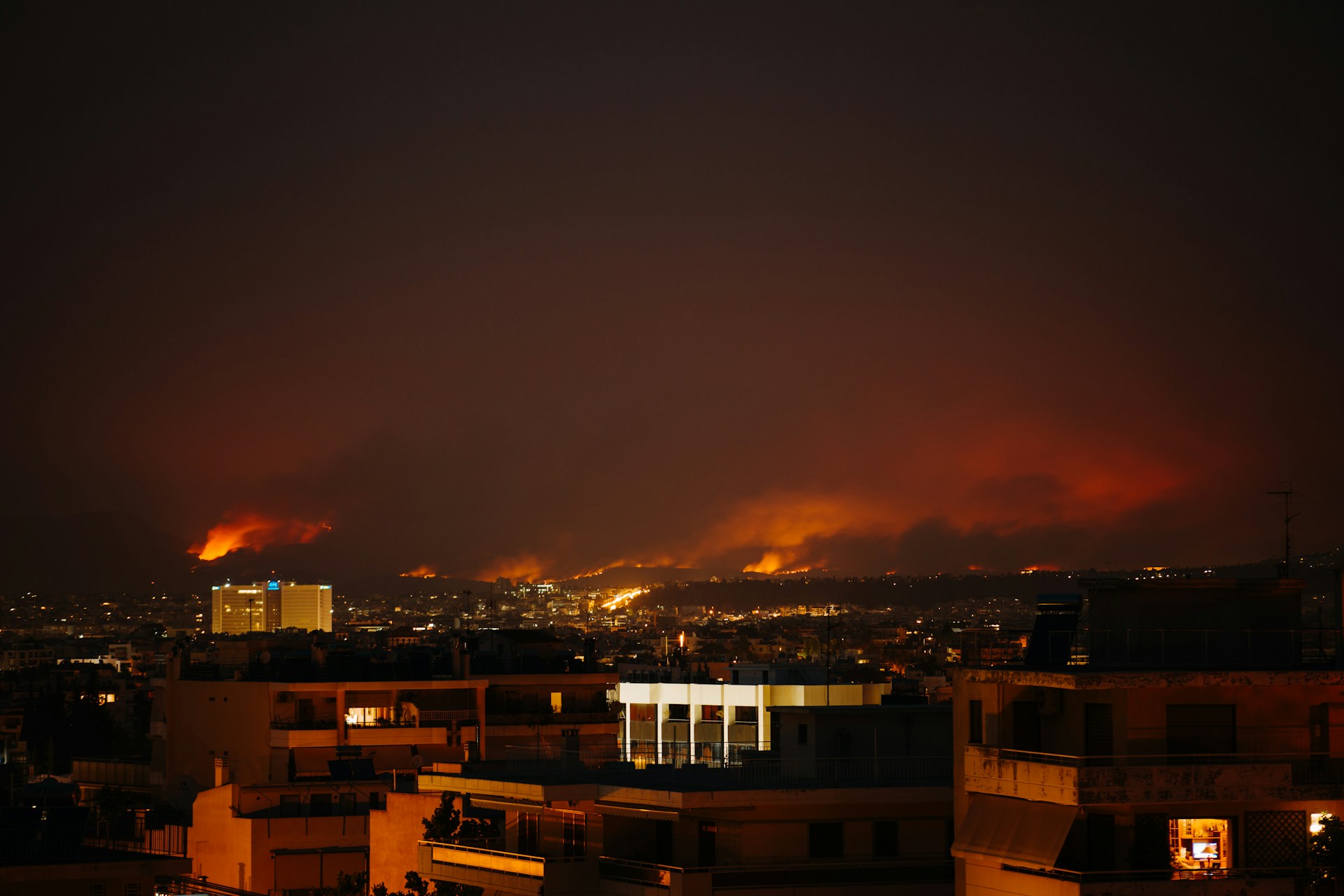Most people just want to enjoy the sunny days and sandy beaches in Summer. But for Greece and Turkey, in 2025, things might have taken a different turn.
This year, the weather has been very different. There has been an intense heatwave affecting Europe. Experts call it a “heat dome.” It traps hot air, making it too hot for comfort. This has made travel to some places harder, especially for families with young kids, older people, or anyone who does not do well in very hot weather.

The heatwaves, stretching from Spain and France all the way to the Middle East, have caused temperatures to climb much higher than normal. Both Greece and Turkey are facing some of the hottest days they have seen in years.
In Greece, temperatures have been pushing well above 40 °C (104 °F) in some inland areas, with coastal cities and islands still feeling very hot due to humidity. Tourists and locals have been warned to stay indoors during the middle of the day, and outdoor work bans have even been put in place to protect people from heatstroke.
Turkey is also struggling with unusually high temperatures. For both countries, the heat makes travel riskier, especially for families.
The outbreak of wildfires in Greece has gotten firefighters working day and night, especially near Athens and on some islands. The combination of extreme heat, dry winds, and very little rain has made it easy for flames to spread. Some areas have been evacuated for safety, with people leaving their homes.
Similarly, Turkey has also been hit hard. In İzmir Province, large fires have destroyed homes and farmland, forcing thousands of people to evacuate.
Popular tourist sites, like the Acropolis in Athens, have been closing for a few hours to protect visitors and workers from heatstroke. This means that families who plan to go sightseeing might find sudden changes or cancellations in their schedules. In Turkey, the risks are just as serious. Some holiday areas have been evacuated too.
Even if the forecast for Greece or Turkey looks safe, heatwaves can return suddenly and push temperatures dangerously high. In both countries, strong winds can also make wildfires spread quickly, changing travel plans without warning. Sudden summer storms can appear too, especially along the coasts, which may delay ferries, flights, or outdoor activities.
All of these raise concerns for tourists, especially those travelling with families. Young children, elderly relatives, and anyone with health problems might be vulnerable to extreme heat and poor air quality. Long days in the sun can quickly lead to dehydration, sunburn, or heat exhaustion, and sudden closures or evacuations can disrupt plans.
Families who still wish to visit should plan carefully, choosing safer places like coastal areas. Make sure to also check the local news for updates.
So, should families avoid Greece and Turkey in August 2025? While there are still safe places to see and enjoy in these countries, it might be better to travel later in the year when the weather is cooler and more predictable. However, if you decide to go, choose your destinations and activities wisely, and follow updates, advice, and safety instructions from local tourism authorities and government agencies.
If you want the latest information on the best Hotel Executive Club Lounges, Hotel Kids Clubs and other travel information, be sure to sign up for our free newsletter full of tips and great travel ideas.